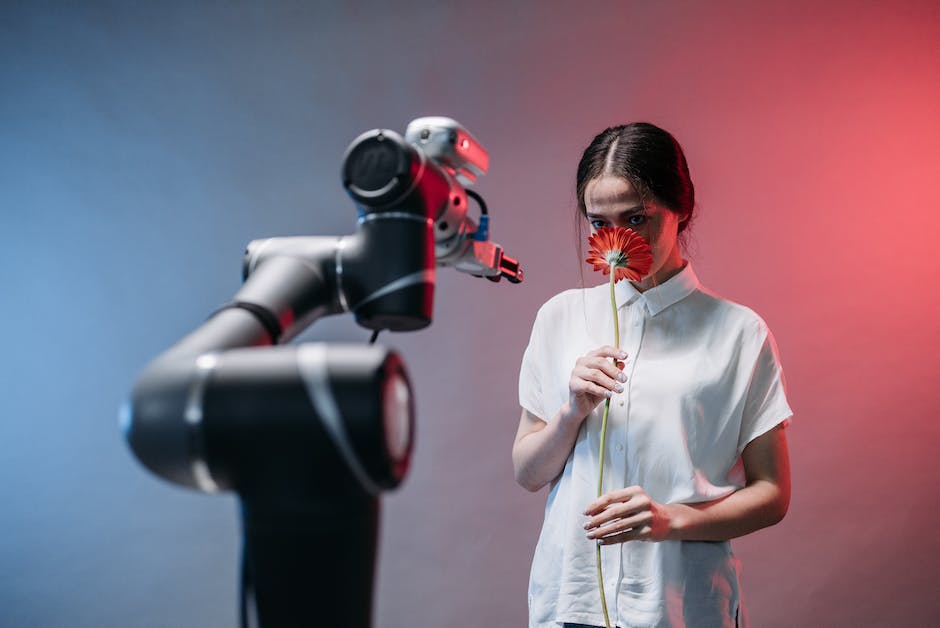As we plunge deeper into the digital age, the domain of content creation is being radically transformed by the advent of Artificial Intelligence (AI). This sophisticated technology that mimics human intelligence has found myriad applications, remarkably in the creative realm. From simple text to intricate images and videos, AI holds the potential to generate content across mediums, thereby heralding a new era of communication. This essay will journey into the fascinating world of AI and its applications in content creation, elucidating its numerous benefits, challenges, and the anticipated trends in its evolution.
Understanding Artificial Intelligence and Content Creation
Understanding Artificial Intelligence and Content Creation
Artificial Intelligence (AI) is a branch of computer science that aims to mimic human intellect process into computer systems. It operates based on a multiple number of algorithms and complex set of rules. This technology has the capability to learn and analyze volumes of data, recognize patterns, make predictions and take decisions, often at a faster rate than humans while also minimizing errors.
Evolution and Current State of AI
AI has noticeably evolved over the years. First coined in 1956, the term ‘Artificial Intelligence’ pertains to the creation of systems that can perform tasks that would require human intelligence, such as recognizing speech, language translation, decision-making, and visual perception.
With the advent of data-driven technologies and the internet of things (IoT), AI has significantly evolved from basic learning algorithms to advanced ML algorithms, neural networks, natural language processing, and robotics.
Currently, AI and ML tools are helping a wide array of industries including entertainment, healthcare, supply-chain, and e-commerce to optimize processes, reduce operational costs, enhance customer experience, and make informed decisions.
AI in Content Creation Tools & Systems
With the explosion of data worldwide, the media and entertainment industry, among others, has sought solutions to manage and utilize this data in the most efficient way. This is where AI and automation come into play.
AI has the ability to automate the content creation process, making it faster and more efficient. By integrating AI with content management systems and other content creation software, content can be generated automatically based on predefined rules and structured data.
Tools like Wordsmith, Quill, and Articoolo are prominent examples of AI-enabled content creation software. They utilize natural language generation (NLG) technology to convert structured data into readable narratives.
Automation of Content Creation with AI
Automating content creation through AI involves feeding the AI system with relevant information in a structured format which the system then processes to produce meaningful content. This content generation can take several forms, from news articles and reports to advertising copy and social media posts.
In addition to generating content, AI can also tailor content to specific audiences. ML algorithms can analyze a user’s behavior to create personalized content. This extends from recommending relevant articles to users, to showing targeted advertising based on online behavior.
As we conclude, one cannot overstate the profound impacts automation of content creation through AI might hold for content production. The technology promises to build efficiencies, smooth out processes, and potentially lay the pathway for personalized content. The result could be a dramatic surge in customer engagement and a boosted user experience.

AI applications in Content Creation
The Role of AI in Content Creation
In today’s digital world, the hunger for fresh content is insatiable. Whether it’s text, images, videos, or audio, the demand is ever-growing. Artificial Intelligence (AI) is the game-changer in this scenario, revolutionizing content creation by automating the procuring process. This AI-driven renaissance promises to consistently generate high-quality and original content.
Understanding AI in Content Creation
For clarity, AI refers to the technology that imitates human intelligence and performs cognitive functions like learning, solving problems, and making decisions. When it comes to content creation, AI’s role is to help automate and simplify the generation of diverse content, reducing manual effort and increasing efficiency.
AI for Text Generation
In the area of text generation, AI uses natural language generation (NLG) models. These models enable the machine to understand the language nuances and generate human-like text. One of the popular AI-enabled text generators is GPT-3, developed by OpenAI. It can write essays, produce summaries, translate languages, and even create poetry. For instance, The Associated Press uses AI for earnings reports, turning raw data into news stories that have clear narrative constructs.
AI for Image Creation
When it comes to image creation, AI uses Generative Adversarial Networks (GANs). GANs are capable of creating new images from the data they’re trained on. They’ve been used in creating digital artwork, designing clothing items, and generating human-like faces. DeepArt and Deep Dream Generator are examples of AI-enabled image generation tools that transform user-uploaded pictures into artistic creations.
AI for Video Creation
AI has made significant strides in automating video creation. It can quickly compile clips, adjust frame sizes, and add effects, thereby significantly reducing editing time. Companies such as Magisto and Wibbitz offer platforms that leverage AI for automated video creation. They can design professional videos within minutes, offering a wide range of themes and styles to cater to different brand identities.
AI for Audio Creation
AI isn’t just limited to visual content creation—it also plays a significant role in audio content production. AI can generate music and sound effects, convert text to speech, and even replicate human voices. Technologies like Lyrebird AI can copy anyone’s voice by simply listening to a minute-long clip of the speaker.
Ultimately, the automation of content creation driven by AI not only accelerates the production process but also triggers an output of creative and accurately targeted content. The AI’s capability to understand the language, feel, and preferences of a specific audience allows it to produce personalized, compelling content that each user can connect with. As the technology behind AI continues evolving, we can anticipate more revolutionary advancements in the scope of automated content creation.

Benefits and Challenges of AI in Content Creation
Advantages of Utilizing AI in Content Production
In the current digital age, AI has surfaced as a powerful ally, ushering in considerable changes in how content is created. A prominent advantage is the scalability it offers. Assisted by AI, businesses and organizations can create vast amounts of content in a minimal timeframe. This technology is adept at creating diverse content, ranging from posts for social media to news articles and even intricate technical documents. The facility to generate bulk content is especially beneficial for companies requiring regular, high-volume content production.
Beyond scalability, the efficiency that AI contributes to content creation is commendable. The painstaking processes of research, drafting, editing, and revising content are significantly reduced by AI. Leveraging natural language processing (NLP) and machine learning algorithms, AI can swiftly and precisely create content that meets particular requisites, thus eliminating potential for human inaccuracies and delays.
AI’s capability to personalize content is another notable advantage. Due to its ability to grasp and interpret user preferences, behavior, and needs automatically, AI can provide highly customized content. Such personalized content can connect businesses more effectively with their intended audiences.
Lastly, implementing AI for content creation can realize significant cost reductions. Automating the process of content creation reduces the need for large teams of content writers and editors, bringing about substantial savings in labor costs.
Challenges of AI in Content Creation
Despite its myriad of benefits, AI in content creation is not without challenges. Ethical concerns remain a major issue. While AI can generate content, it can also mimic and reproduce existing materials, which poses the threat of copyright infringement or plagiarism.
There might also be issues related to quality control. While AI has the capability to create large amounts of content, it may lack the originality, creativity, and emotional appeal that human writers bring to their work. Slight changes in the context or tone can completely change the meaning of the content, which AI might not detect.
Furthermore, despite the advancements, the use of AI in content creation isn’t completely autonomous. There’s still a significant need for human supervision to ensure the output matches the required tone, style, and context. Human oversight is also necessary to maintain the ethical use of the technology and ensure the content reflects the brand’s voice and values accurately.
One of the biggest concerns with integrating AI into content creation is job displacement. As AI continues to evolve and improve, there is fear that it could potentially replace human content creators. While AI can help create efficiency, scalability, and cost savings, the human touch, creativity, and judgment may be missed which can significantly influence audience engagement.
Final Thoughts
AI holds the impressive ability to boost and streamline the content creation process. However, the best results often come from a balanced approach that leverages the strengths of both AI and human skills.

Photo by floriankrumm on Unsplash
Future Trend and Development in AI Content Automation
Emerging Trends in AI and Content Creation
Across multiple industries, the profound impact of artificial intelligence (AI) is undeniable and its innovative applications are now revolutionizing the field of content creation. These advancements not only include AI abilities to craft content, but also encompass automation of the entire content creation process.
Predictive Text and Content Suggestions
AI technology is further anticipated to advance predictive text and content suggestions. As seen in Gmail’s auto-complete feature, the technology uses machine learning to predict text while a user is typing. The future may unlock more sophisticated predictive text capabilities, aiding in faster and more accurate content creation.
Multilingual and Cross-Cultural Content
Content automation is also expected to break language and cultural barriers. AI can already synthesize multilingual content and translate different languages. Future advancements might include honing in on dialects, colloquialisms, and cultural nuances in content creation, making it more relevant and relatable to a global audience.
Voice Technology and AI
Voice technology is another promising area of development. We’ve seen the impact AI has made in voice-activated assistants like Amazon’s Alexa and Apple’s Siri. In the future, voice technology is anticipated to improve, enabling the creation of high-quality, human-like voice-overs for multimedia content.
Advancements in Automating Complex Content
Presently, most AI content automation tools focus on generating relatively simple content such as reports, articles, or social media posts. Industry experts predict that AI technologies will evolve to automate more complex content types, like white papers, in-depth research reports, or screenplays for films.
Impacts on Various Industries
The advancements in AI content automation are expected to impact a wide range of industries.
In journalism, AI can help automate news reporting, especially for routine and data-heavy reports. The Associated Press, for instance, has been using AI to automate earnings reports.
In education, AI can create personalized learning content based on each learner’s needs. This could revolutionize the way we teach and learn, making education more accessible and effective.
In marketing, AI can automate the generation of promotional content tailored to the target audience, possibly increasing conversion rates and customer engagement.
It’s crucial to state, however, that the automation of content creation with AI does not mean a decline in the need for human creativity and input. Instead, content creators can leverage AI to deliver more engaging, personalized, and high-quality content. Moreover, AI tools will free content creators from monotonous tasks, allowing them to focus more on creative and strategic aspects of content creation.

As the omnipresence of AI continues to grow, so does its influence in the field of content creation. The efficiency, scalability, and cost-effectiveness it offers are indeed enticing, yet, it also poses unique challenges such as ethical considerations and job displacement. Nevertheless, the future of AI in content creation promises exhilarating advancements and transformative impacts across various industries. Amidst this potential for immense growth and change, it ultimately falls upon us to navigate this powerful tool responsibly and judiciously, ensuring that this digital revolution engenders more prosperity than disparity.